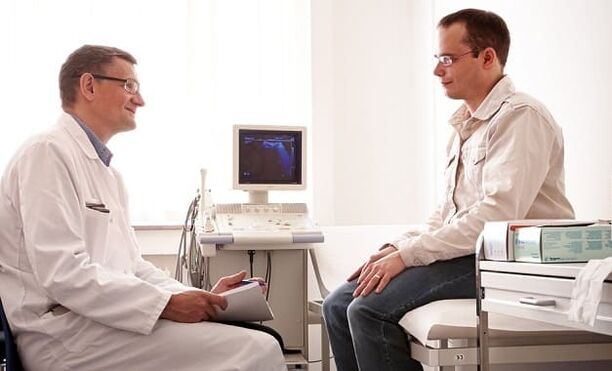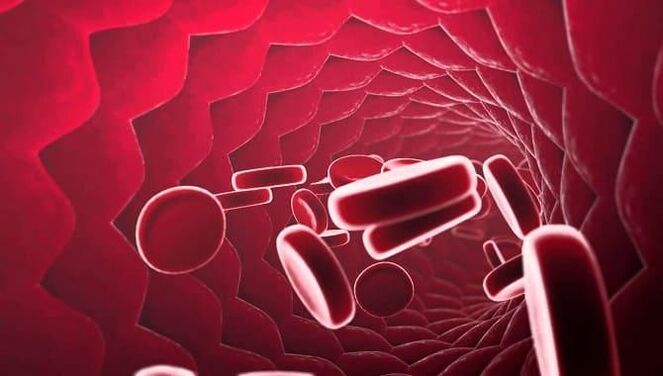Prostatitis is an inflammation of the prostate, accompanied by impaired sexual function and urination disorders.It is diagnosed based on BakposeV data from prostate juice, clinical blood tests and pelvic organ ultrasound.Tablets of prostatitis destroy the pathogenic bacteria in the prostate gland, restore the passage of urine and stop the pain.Conservative treatments include drugs with different effects - antibiotics, muscle relaxants, analgesics and on the abs.
Complex treatments
Because of prostatitis, they resort to conservative treatment.The basis of treatment is two types of medication:
- Alternatives (antibiotics, antivirals, antibacterials) - destruction of the cause of infection;
- Symptoms (non-nucleic acid analgesics, muscle relaxants, antihistamines) - Block the symptoms or reduce the severity.
In the case of chronic inflammation, prescription prostate massage and physical therapy procedures - laser therapy, magnetic therapy, urethra urethra microwave thermal therapy.
Types of medications used
Tablets for prostatitis are prescribed by doctors and surgeons.In simple inflammation of the prostate, it is treated on an outpatient basis.Treatment includes drugs from several pharmacological groups:
- Antibacterial;
- counter-spread;
- Pain relievers;
- Vascular phagocytosis;
- sedative;
- Immune stimulation.
The selection of drugs is subject to the severity of the clinical situation, the type of pathogen, and the presence of complications.Prostatitis is also used in the context of urethritis or cystitis, and urine protein congestion - an antibacterial agent that eliminates infections in all parts of the urine system.

Before the medication was prescribed, Androgist performed a test during which prostatitis distinguished from diseases with similar symptoms—bladder cancer, adenoma and neck cancer of prostate cancer.
antibiotic
In 10 cases, 8 cases were caused by pathogenic bacteria in the inflammation of the gland.Therefore, with prostatitis, men prescribe antibacterial drugs.They prefer antibiotics that can penetrate the gland tissue and produce high concentrations in it.
Recommended medicines:
- macrolides;
- fluoroquinolones;
- tetracycline.
The initial improvement is evident 2-3 days after starting treatment.However, in order to certainly destroy the pathogenic bacteria in the genital system, antibiotics take at least 4 weeks in a row.
In chronic prostatitis, there is no prescribed for adverse drug accumulation in prostate tissue.Therefore, aminoglycosides have never been used for treatment.

The therapeutic effect of most antibacterial drugs depends on the dosage.In the treatment of acute inflammation, it is very important to take tablets at a bactericidal dose.
Anti-inflammatory and pain relief medicines
Non-replacement anti-inflammatory drugs (NSAIDs) are the best remedies for pain and inflammation in the genital system.Most of the methods in this group inhibit the production of special enzymes (cyclooxygenases), thereby promoting inflammatory responses.
Acute prostatitis promotes severe pain in the pelvic area and perineum.
Licking inflammation increases the risk of hyperplasia and prostate adenoma.Therefore, patients with chronic prostatitis are prescription drugs to prevent the growth of gland tissue.
alpha receptor blockers
Prostatitis is accompanied by inflammation and increased glands, so the urethra is compressed.As a result, urination disorder occurs - bladder pain is slow and incomplete.Alpha blockers are used to restore urine passage.They relax the smooth muscles, thus enlarging the inner diameter of the bladder's urethra and neck.

The drugs in this group expanded veins and arterial blood vessels and lowered blood pressure.
Alpha-blockers can be attributed to the urodynamic corworm group.Instead of eliminating the cause of the disease, they promote urination.The effect is noticed within 1-2 weeks after the start of treatment.
sedative
For men's treatment, prostatitis is often sedated.The disease has a negative impact on quality of life, causing urination problems and erectile dysfunction.This becomes the cause of neuropsychiatric disorders - emotional instability, depression, neurosis.
To improve the psychological and emotional state, drugs were used:
- Normalize the functions of the nervous system;
- Relieve worries;
- Improve sleep;
- Increase stress resistance.

Sedatives can enhance the effects of antipsychotics and sedatives.Therefore, you need to consult a doctor before taking the medication.
musorelaxant
Using recurrent prostatitis, prescribe Muscle Relaxation - a medication that relaxes the smooth muscle.They eliminate tension in the bladder, urethral tube.For maximum relaxation, they are used in conjunction with NSAID.Actin reduces the concentration of non-nucleic acid analgesics, thus preventing irritation of the gastrointestinal mucosa.
Muscle relaxant preparations are specially used for spasms of high muscle tone, urinary catheter or air bubbles.Overdose is full of nausea, muscle pain, and respiratory depression.
Mura's syrup is contraindicated in ulcers of 12 collar, psychiatric, epilepsy and Parkinson's disease.
Recover blood flow
In order to heal the prostate, it is necessary to improve the blood supply to the pelvic organs.As the blood flows, the organs receive nutrients, which stimulates the metabolism and regeneration of damaged tissues.Systemic intake of drugs prevents congestion, edema and compression of the urethral tube.
For gland treatment, medications with the following properties are prescribed:
- Vascular dilation - Increases the diameter of blood capillaries and blood flowing to the pelvic organs;
- Vascular protection - Increases the density of blood vessel walls and prevents swelling;
- Antiplatelets - Prevent platelet gluing.
Preparations to restore blood flow in the pelvis are used to treat men with prostatitis.
Medicines are only used in complex therapies.To avoid irritation of the gastric mucosa, tablets will be taken after eating.
Immunomodulator
It is recommended to treat prostatitis with drugs that stimulate the operation of the immune system.They increase resistance to infection, thus reducing the possibility of exacerbation.
Indications for receiving immunomodulators:
- recurrent prostatitis;
- Vitamin mineral failure;
- secondary immunodeficiency;
- Chronic bacterial inflammation.

As the body's resistance is denied prematurely, infections are reduced.Therefore, the possibility of recurrence of prostatitis is increased.
To achieve the desired therapeutic effect, take an immunomodulator for 2-8 weeks in the course.
Plant therapy drugs
Preparations based on ingredients of animal and plant origin will not increase the drug in the body.They are well tolerated and do not cause serious side effects.
Natural medicines are suitable for the treatment of prostatitis and other theoretical urinary pathology, such as adenomas or gland hyperplasia.
Herb-based preparations often cause allergic reactions and urticaria.Therefore, due to ingredient allergies, it is best not to use phyto mean treatment.
Vitamin
Vitamin mineral deficiency is one of the most common causes of recurrence of bacterial infections in the genital and reproductive system.In order to enhance immunity, supplement nutrients are insufficient.Therefore, use prostatitis, prescribe vitamin-enhancing agents.
Tablets with a variety of biologically active ingredients supplement vitamins.Therefore, metabolism accelerates and cellular immunity is enhanced.
It is recommended to prevent and prevent prostatitis lesions twice in the fall and spring.They reduce the risk of hemotoxins, colds and metabolic diseases.
Dangers of self-testing
Prostatitis is a urology disease that often enters a chronic course.Therefore, it is strictly not recommended to take drugs without opening a doctor.Self-assays are full of obstacles in the work of the urine and reproductive systems.Irrational therapy is dangerous:
- Chronic prostatitis;
- Erectile dysfunction;
- Acute urinary retention.
- Urolithiasis;
- Infertility;
- Pus in the prostate;
- The urethra becomes narrower.
The wrongly selected antibiotics do not destroy the infection, which can cause purulent inflammation of the glands.Abscesses of the prostate are instructions for surgical intervention.
Prostatitis is a male disease and is inflammation of the prostate.With timely and appropriate treatment, the therapy is good.However, in the case of transitioning to a chronic form, it often causes complications.So, in the first sign of prostatitis - dysuria, perineal pain, blood in the urine - you need to contact your urologist or hemologist.
























